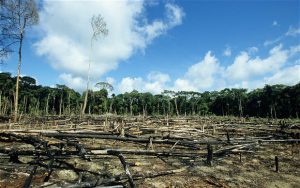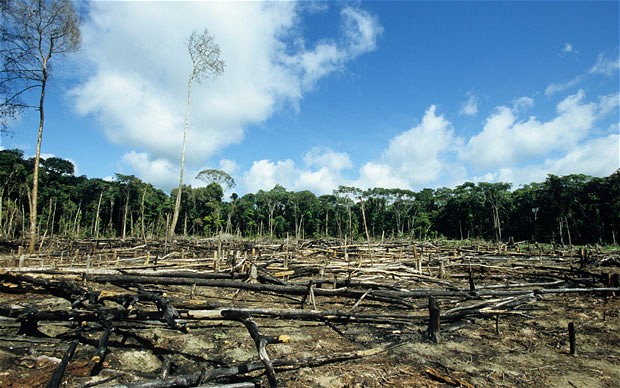Creator of the ‘ecological footprint’ on life and death in a world 4 C hotter.
“Carbon emissions may continue to rise, the polar ice caps may continue to melt, crop yields may continue to decline, the world’s forests may continue to burn, coastal cities may continue to sink under rising seas and droughts may continue to wipe out fertile farmlands, but the messiahs of hope assure us that all will be right in the end. Only it won’t.” — Chris Hedges
One thing the climate crisis underscores is that Homo sapiens are not primarily a rational species. When forced to make important decisions, particularly decisions affecting our economic security or socio-political status, primitive instinct and raw emotion tend to take the upper hand.
This is not a good thing if the fate of society is at stake. Take “hope” for example. For good evolutionary reasons, humans naturally tend to be hopeful in times of stress. So gently comforting is this word, that some even endow their daughters with its name. But hope can be enervating, flat out debilitating, when it merges with mere wishful thinking — when we hope, for example, that technology alone can save us from climate change.

As novelist Jonathan Franzen asks:
“If your hope for the future depends on a wildly optimistic scenario, what will you do 10 years from now, when the scenario becomes unworkable even in theory?”
We needn’t bother Roger Hallam with this question. He can scarcely be held up as a “messiah of hope.” Quite the contrary. Hallam, a co-founder of Extinction Rebellion, has been desperately warning of societal collapse for years.
But on Aug. 15, in a memorable session of the BBC’s HardTalk, Hallam irritated multiple cultural nerves by claiming, on the basis of “hard science,” that six billion people will die as a result of climate change in coming decades.
More specifically, our ruling elites’ inaction and lies on climate change will lead to climate turmoil, mass starvation and general societal collapse in this century. Normally unflappable HardTalk host, Stephen Sackur, just couldn’t wrap his mind around Hallam’s unyielding assertions.
Sackur is no solitary skeptic. UC Davis research scientist Amber Kerr dismisses Hallam outright. The idea that six billion people are doomed to die by 2100 “is simply not correct. No mainstream prediction indicates anywhere near this level of climate-change-induced human mortality, for any reason.”
Similarly, Ken Caldeira, senior scientist, Carnegie Institution, points out, “There is no analysis of likely climate damage that has been published in the quality peer-reviewed literature that would indicate that there is any substantial likelihood that climate change could cause the starvation of six billion people by the end of this century.”
One key to understanding these scientists’ rejections is their language. They assert that there is “no mainstream prediction” nor analysis in the “peer reviewed literature” that climate change will precipitate such catastrophic human mortality.
But keep in mind that scientists are reluctant, for professional reasons, to go far beyond the immediate data in formal publication. Moreover, organizations like the United Nations, including even its Intergovernmental Panel on Climate Change, are so dominated by economists’ concerns and bent by political considerations that extraneous noise obscures the scientific signal.
Prominent climate scientist Hans Joachim Schellnhuber, director emeritus of Germany’s Potsdam Institute for Climate Impact Research, argues that, in these circumstances “a trend towards ‘erring on the side of least drama’ has emerged” and “when the issue is the survival of civilization is at stake, conventional means of analysis may become useless.”
Exploring this argument, policy analysts David Spratt and Ian Dunlop conclude, “Climate policymaking for years has been cognitively dissonant, ‘a flagrant violation of reality.’ So it is unsurprising that there is a lack of understanding amongst the public and elites of the full measure of the climate challenge.”
It seems that in mainstream scientific publications and official reports, the truth about climate change and the fate of civilization may be buried deeply between the lines.
Fortunately, there are other contexts in which experts are not quite so reticent and whose assertions echo Roger Hallam’s. As much as a decade ago a climate symposium organized to discuss the implications of a 4 C warmer world concluded, “Less than a billion people will survive.” Here Schellnhuber is quoted as saying: “At 4 C Earth’s… carrying capacity estimates are below 1 billion people.” His words were echoed by professor Kevin Anderson of the U.K.’s Tyndall Centre for Climate Change:
“Only about 10 per cent of the planet’s population would survive at 4 C.”
Read more: The Tyee




